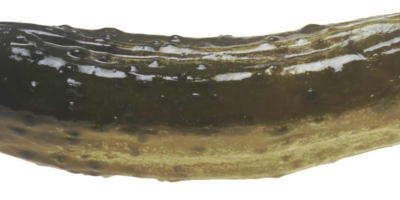By Danny Mayer
There is a brief clip from David Leaf and John Scheinfeld’s 2006 documentary The U.S. vs. John Lennon that has always stood out to me. The documentary looks at the radical politics (and kickass post-Beatles music) of John Lennon, and the scene in question comes early in the documentary, as Leaf and Scheinfeld attempt to frame Lennon’s marriage to the visual artist Yoko Ono as one of complete-ness…a merging of separate artistic selves into a whole greater than its parts.
The line the directors use to convey this sense of Ono’s importance to Lennon comes from a male friend of his, who says simply that Ono made Lennon’s voice whole.
Leaf and Sheinfeld’s depiction of Ono is one not much shared amongst Lennon fans, both casual and serious. In the heavily Beatles-inflected masculinist Lennon mythology, Yoko is, to quote a friend of mine from high school, “the bitch who broke up the Beatles.” Some put this sentiment in other, slightly less misogynistic, terms, but the message is nevertheless the same. The Beatles were, after all, the nation’s first boy band, and probably its most successful. Even if it only took the little boys a couple more albums to become hep to what the girls already knew about the boys from Liverpool, someone’s always got to pay when you let little boys down—especially when they grow up into big boy music critics. So, what the hey, why not that bitch Yoko.
Like her counterpart Linda McCartney, the Ono hate extends beyond the Beatle’s 1969 breakup. The endless jokes—mostly from men, some music critics—about how awful Yoko sings and plays have helped cement a general feeling that Lennon’s post-Beatles work never quite reached the same ecstatic heights when his bride Yoko—sitting in for boy pal Paul—wailed away at his side. The jokes are mostly spot on of course. Yoko’s a horrible singer, but it seems hardly the point.
For one, who the fuck cares. If playing music comes down to recognizing good singers and players and calling out the bad ones, god help the rest of us mortals who fiddle around and play and watch and sing. Rock and roll is, at its heart, about playing. The whole idea of good and bad singing just seems like a fairly petty and vindictive kind of way to relate to music.
And besides, Ono’s off key notes are key contributors to many Lennon/Ono songs. The Ono banshee shrieks that screech out at you in the 16 minute long live jam “Don’t Worry Kyoko” are absolutely freaky and brilliant; the eight minute live jam “Cold Turkey,” which Lennon introduces by saying “This song is about pain,” features Lennon’s own, more on key but equally violent, banshee screams that mimic Ono’s off-key blasts. Sure Ono was no fine singer, but coupled with Lennon’s voice she contributed immensely to some damn fine music. Bad voice, maybe, but good songs.
In focusing on Yoko’s voice, there’s also been a disservice done to Lennon’s work after the Beatles. His 1972 album Some Time in New York City, for example, is to my mind Lennon’s best album. The amount of musical terrain that Lennon covers in the album is fairly immense. Finally unencumbered by overproduction in the Beatles studio, Lennon’s sound is liberated to roam rock’s recent pasts. The result is a barely restrained violence and rock exuberance stitched into a 50s skiffle, ska, and liverpool drunk-ass hard-playing bar band beat.
More than anything, Some Time showcases just how great a voice Lennon had. It had the capacity to be both soft and hard, dirty and sweet, often within the span of one note. If we’re talking about Lennon’s all-time great rock and roll work—stripped down electric: drums, guitar, base, singing—this album is it, Beatles work or no. And that’s saying something.
Of course, Lennon’s great voice, heard on the album Some Time and shown throughout the documentary The U.S. vs. John Lennon, did not just involve his singing voice. By the late 1960s and continuing on through the 70s, Lennon’s political voice flowered as well. In one interview from the documentary, he says, “’When I play I wanna hold your hand,’ everybody sings along, so I might as well put the words peace into my songs to get them to sing that.” The dance-ability, sing-ability, and rock-ability never actually left, it was just that, lyrically, “Twist and Shout” had given way to “Give Peace a Chance,” a simple folk song sung enmasse by a hundred thousand protesters of differing musical skills encircling the White House in a 1969 anti-war rally.
As Some Time shows, though, Lennon’s newfound folk politics and songs didn’t tend only toward abstract folk platitudes of peace. His understanding of folk was far more wide ranging. Lennon wrote folk songs about pain (“Cold Turkey”), racism (“Luck of the Irish”), marijuana use (“John Sinclair”), and violence. Lots of violence, in fact: prison violence (“Attica State”), imperial violence (“Sunday Bloody Sunday”), and political violence (“Angela”)–all angry indictments of violence perpetrated on everyday working class heroes by unjust forces of the state or some other incarnation of the Man, sung in loud, guitar-heavy bursts of confused rage and love.
It’s folk, all of it, pulled from the headlines of the day, given short intelligable lyrics,and set to the particular musical style necessary to the feeling, which is why I, like the Lennon friend interviewed in the beginning of the documentary, am also a big fan of John and Yoko’s voice.
We lost a lot when Mark David Chapman gunned down John Lennon in front of the singer’s New York City apartment building nearly thirty years ago. But what I miss most is his voice, their voice: beautiful, chaotic, humane, human.
The U.S. vs. John Lennon will be shown on Thursday, March 4 in the Oswald Auditorium of the Bluegrass and Technical College Cooper Campus. (It’s right next to Commonwealth Stadium.) Public welcome. Afterwards, feel free to stay around to hear musician Wes Houp talk about the politics of folk music. Mostly he’ll just play his guitar. We’re hoping for “Barely Living Wage Blues,” “Torture Me Light,” and/or “In the Great Out There.” He might know a John Lennon song.



Leave a Reply